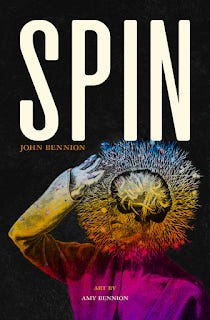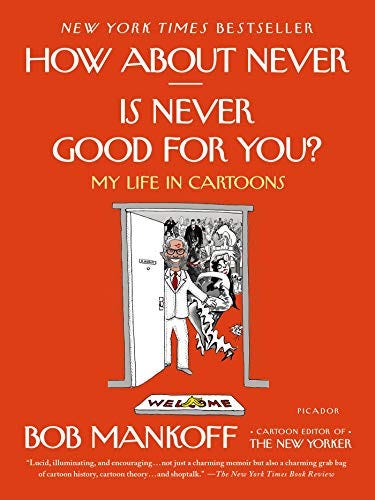.
077) V is for Vengeance by Sue Grafton, finished July 7
One fun puzzle to work out in any of these books is just what the title is in reference to. This one has layers. So many vengeances!
Organized crime and people connected in so many different ways. If ever there was a Grafton novel to break out the red yarn and corkboard over, this is it. It was also intensely satisfying. Even though I've decided I miss the old days when the entire novel was from Kinsey's perspective. It did provide the unusual perspective of seeing Kinsey from another character's point of view. It also provided a different sort of morality in that one of the final thrills is a bad guy getting away with it. These are not books that allow you to cheer for bad guys.
Which makes me excited for X. (And even more disappointed over Z.)
Onward!
A B C D E F G H I J K L M N O P Q R S T U V
the first chapter months ago the rest in about a month
078) Spin by John Bennion, finished July 10
This was the third of three books I ordered on April 6 (!) and when it arrived I was stunned by how long it was. I was expecting a slim lil volume and it was not that. Heike's Void was longer than I expected but Spin was, like a dozen Hemingways in Paradise!
I figured it was entering the realm of Books I Own But Who Knows If or When I'll Ever Read Them. There are already a couple Bennion books in that category, to be honest.
But I was intrigued by the concept and it kept staring at me from the shelf and it felt paired to Heikie's, which I had loved, so one Sunday afternoon I stood from the couch and took it down. Glad I did.
I'm a little hesitant to talk about the novel as most of what I want to say will sound like the sort of stuff that might keep me from reading it, had I known ahead of time. So be warned of spoilers—not spoilers of plot! but spoilers of theme and tone and form and narration.
The "concept" I referred to above was that the main character's daughter is taken from her in a divorce. She grabs her and runs off and manages to stay ahead of her pursuit by delegating her decisions to an "executive decision maker."
On page 48—much later than I would have expected from, say, Vonnegut (as in Slaughterhouse-Five or Timequake)—Bennion steps out from behind the curtain and just starts talking to us with no warning about swimming in the faculty pool and imagining being a pregnant woman. It's startling. Then he's back to the story.
It takes a few of these visits before we can figure out what he's up to.
And what he's up to is plural, but I only wish to discuss one.
Bennion has broken fiction in a manner I never imagined it could be broken.
He tells us that his heroine's journey isn't just fictionally determined randomly. No, the author himself is using random methods to determine what happens to her next.
I never realized how much, in fiction, we count on the guiding hand of the author, that such a hand exists, to convince us to keep reading. We trust the author. And John Bennion has rejected that stewardship.
It made for a disorienting experience. It made me wonder if the book I'd picked off the new shelf at the library, read chunks from, then tossed away in anger and disgust, was right: storytelling, fiction—these things are terrible and we should just stop. Spin made me question the entire enterprise of fiction.
But as his intrusions into the text become longer and more frequent, we entered on a journey with him, discussing how much responsibility writers even deserve.
And thus, I believe, we come to the title's primary meaning—not spin as in the tool poor Lily uses to design her life, but spin as in doctors. Bennion explores is own politics and artistry and feelings and wonders how well he is doing expanding beyond all the privileges he has inherited to really imagine the Other.
En route, he quotes numerous thinkers (especially Levinas). And, perhaps, presents an argument against the fiction-hater whose book I still intend to leave at the library.
I rush to assure you that this second layer of the book (the essaying, he calls it) does not prevent the fiction from working. This film gave me one of the most upsetting moments I've had in some time as well as some successful thrills. The oppression Lily undergoes in this book, the powerlessness, is heavy. And the book supplies no easy wins in the end. It may turn out well, but it'll take thirty years.
Let's also point out that the Lily-drawn illustrations (actually by daughter Amy Bennion) are excellent and thought-provoking and mysterious. We don't know what they are until near the end of the novel, not long after a long gap without any at all.
It's hard to say whether this book is a "success" or a "failure" because those terms hardly seem the point. The etymology of the word "essay" is to try and that of "fiction" is to form. The book does both these things with aplomb. And it rather forces us to as well.
Certainly, it's not an experience I've had before.
a hair over a month
079) The Complete Cartoons of The New Yorker edited by Robert Mankoff, finished July 11
Let me make clear I read the paper. the book comes with two cds that contain the complete 68, 647 cartoons that have appeared over the years. Haven't hit that yet.
But it's a hefty collection all the same! Over 600 pages with short essays on each of the first eight decades (it was released in 2004) and bitty essays as well on certain themes and cartoonists.
If you know what to expect, you will be correct.
coupla weeks
080) The Shepherd's Crown by Terry Pratchett, finished July 23
This is the final Tiffany Aching book (1, 2, 3, 4) and also the final novel of Sir Terry's career. It's astonishing how much he accomplished in the seven, eight years he had between diagnosis and death, but it still came to an end.
This one felt a little . . . less . . . and the afterword by the author's factotum reveals why. And it wasn't because his brain was decomposing. Or at least, not much.
Terry Pratchett would write important chunks of the book, assemble them, then add and refine until his publisher took it away from him. This makes me feel good because this is how I wrote Byuck but it also explains why this book wasn't up to his normal standard of excellence. It was in full form, but he died before he could finish it. And that's sad, but this is still a wonderful book. Geoffrey is an excellent addition to the cast; the some of the side witches are developed in interesting ways; the final line is absolutely perfect; et cetera. But other bits (the development of Nightshade, the shape of the final battles) are not up to par. And you have to imagine, with a few more months, they would have been.
Anyway. Thank you, Terry Pratchett. Each of your books is a gift and we are grateful.
under a month
081) W is for Wasted by Sue Grafton, finished July 25
What a thrilling conclusion! Sue Grafton at her best builds everything into astonishingly tense conclusions.
There's no doubt that's she's abandoned all pretense of the alternate p-o-vs being some creation of Kinsey's. Kinsey's purely a fictional character, I guess.
But it's hard to see how you recreate this story through just one character's point of view. You lose something but you gain something. Who am I to say all twenty-five books have to play by the same rules? I'll try not to mention this again.
The book opens with two bodies appearing at the same time and Kinsey, of course, getting involved with both. Hijinks ensue, including a trip to Bakersfield down down roads and even in a building I know well. Maybe she'll get to the corner of Shaw and Fowler—or even Tehachapi!—before she's through!
A lot of new issues are introduced in this novel—cats, wealth, a new set of family dynamics, new varieties of forgiveness. I was all ready to complain that it had been too long since Kinsey had connected with her extended family, but waaaaay more happened there than I expected!
As always, since 2017, I'm sad we'll never get all the way to Z. I genuinely believe she had the conclusion planned out. I would take a coffee-table book of her notes.
A B C D E F G H I J K L M N O P Q R S T U V W
i guess eighteen days
082) How About Never—Is Never Good for You? by Bob Mankoff, finished July 28
Mankoff has been the cartoon editor at The New Yorker since the Nineties and this memoir is about his journey, but it's also a mini-history of drawings at the magazine from before his time and into the present (2014; he retired in 2017; some things have changed since then—for instance, he recommended submitting at least ten a week and now you can submit no more than ten a month which, let's face it, is more manageable for the hobbyist).
Anyway! Bob is a wonderful host and the book is loaded with cartoons new and old. It's a wonderful read. One of the books Lady Steed stole from me and read first and actually finished and returned because she wanted to talk about it. I know you don't sleep in our bed, but that is high praise indeed.
since before the other new yorker book







